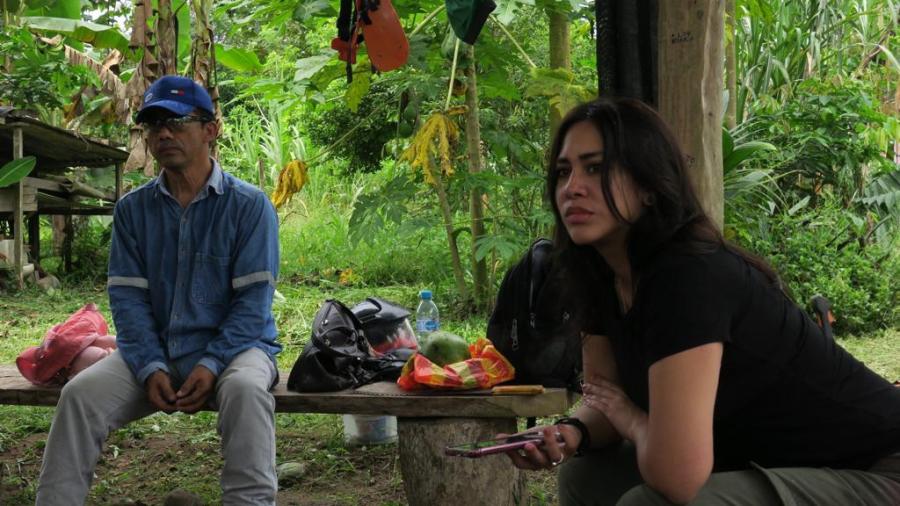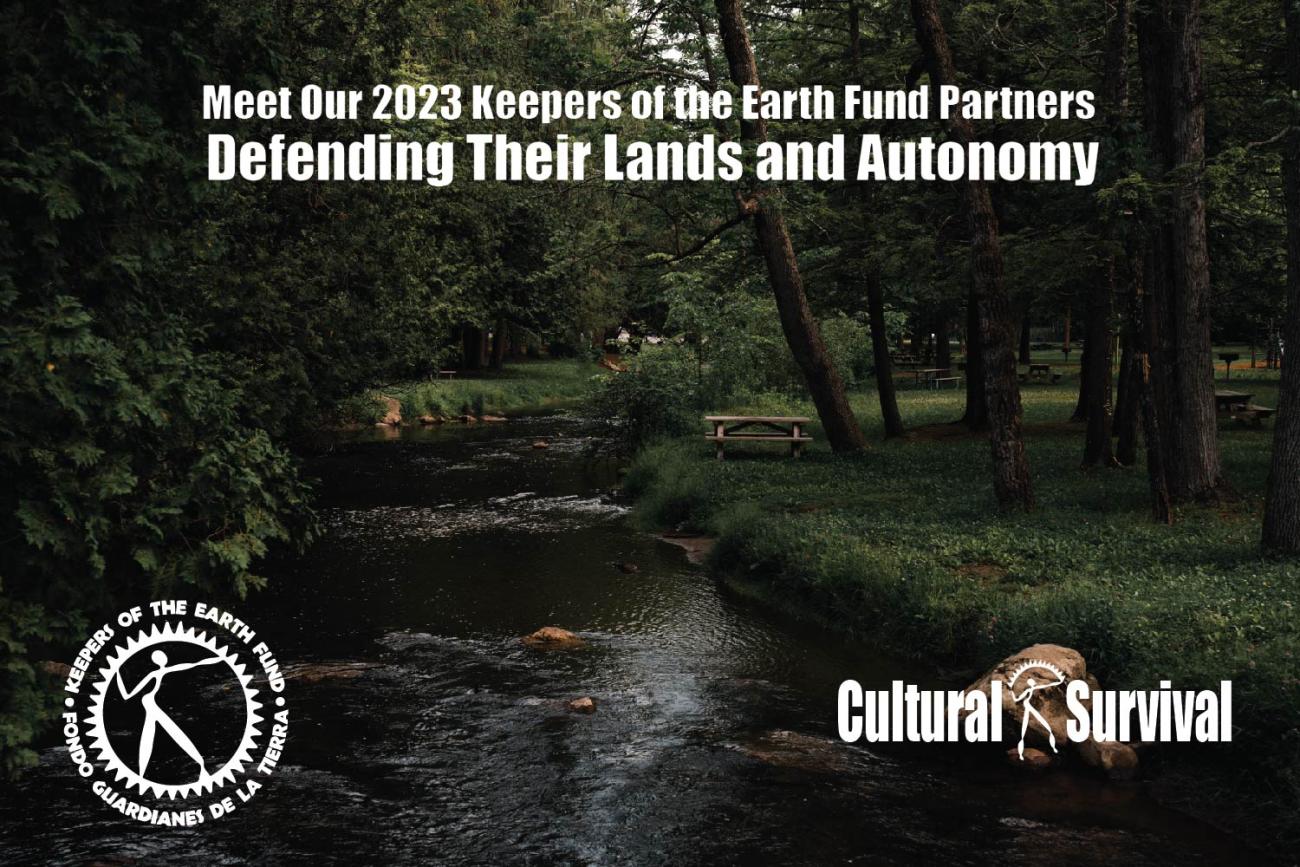
The Keepers of the Earth Fund (KOEF) is proud to announce that in 2023 we awarded over half a million dollars in small grants to support Indigenous projects on issues related to community empowerment for land defense and autonomy; the transmission of Indigenous knowledge; traditional medicine and Indigenous spirituality; food sovereignty and Indigenous economies; and the various forms of resistance to mining for the energy transition.
In total, 72 Indigenous projects and collectives were financed for a total amount of $543,605. The funds were sent directly to Indigenous communities, collectives, and grassroots organizations in 21 countries.
At Cultural Survival, we value cultivating long-term relationships with our partners. Therefore, we awarded 22 grants to organizations that had received grants in prior years, representing one-third of this year's total. Following our programmatic priority of supporting Indigenous women and youth, 16 organizations led by Indigenous women and 9 projects either led by or directly supporting Indigenous youth were financed.
The Keepers of the Earth Fund is an Indigenous-led fund at Cultural Survival designed to support Indigenous Peoples' advocacy and community development projects globally. Since 2017, we have supported 310 projects in 41 countries through small grants and wrap-around support totaling $1,603,307. Grants go directly to Indigenous communities, collectives, organizations, and traditional governments to support projects designed by them and in accordance with their Indigenous values. Predicated on the United Nations Declaration on the Rights of Indigenous Peoples, Cultural Survival uses a rights-based approach in our grantmaking strategies to support grassroots Indigenous solutions through the equitable distribution of resources to Indigenous communities.
Meet our grant partners who are working to strengthen their communities to defend their lands and autonomy.
Pariri Indigenous Association - (Munduruku), Brazil
In Pará, Munduruku Peoples of the middle and upper Tapajós are experiencing an increase in business megaprojects supported by the State, which are exacerbating the problems of invasion, expropriation, and violence. The Pariri Indigenous Association recognizes the necessity to reinforce the protection of the Munduruku Sawre Myubu territory, for which they designed an educational project to train young people in territorial surveillance. Funding from KOEF is supporting Indigenous resistance against the expansion of State megaprojects in Brazil.
Indigenous Confederation of the Upper Amazon (COIDAM) - (Murui-muyna, Muinane, Bora, Okaina, Andoque, Nonuya, Inga, Carijona, Miraña), Colombia
The Indigenous Confederation of the Upper Amazon was formed in 1984 by representatives of the four areas of the Resguardo Predio Putumayo with the intention of defending their rights. This year, to commemorate the 35th anniversary of the official delivery of the reserve’s title, COIDAM organized an eight-day meeting with the nine Indigenous Peoples who live there. The objective is to strengthen organization and participation in political decision-making spaces in relation to projects, programs, and government development plans.
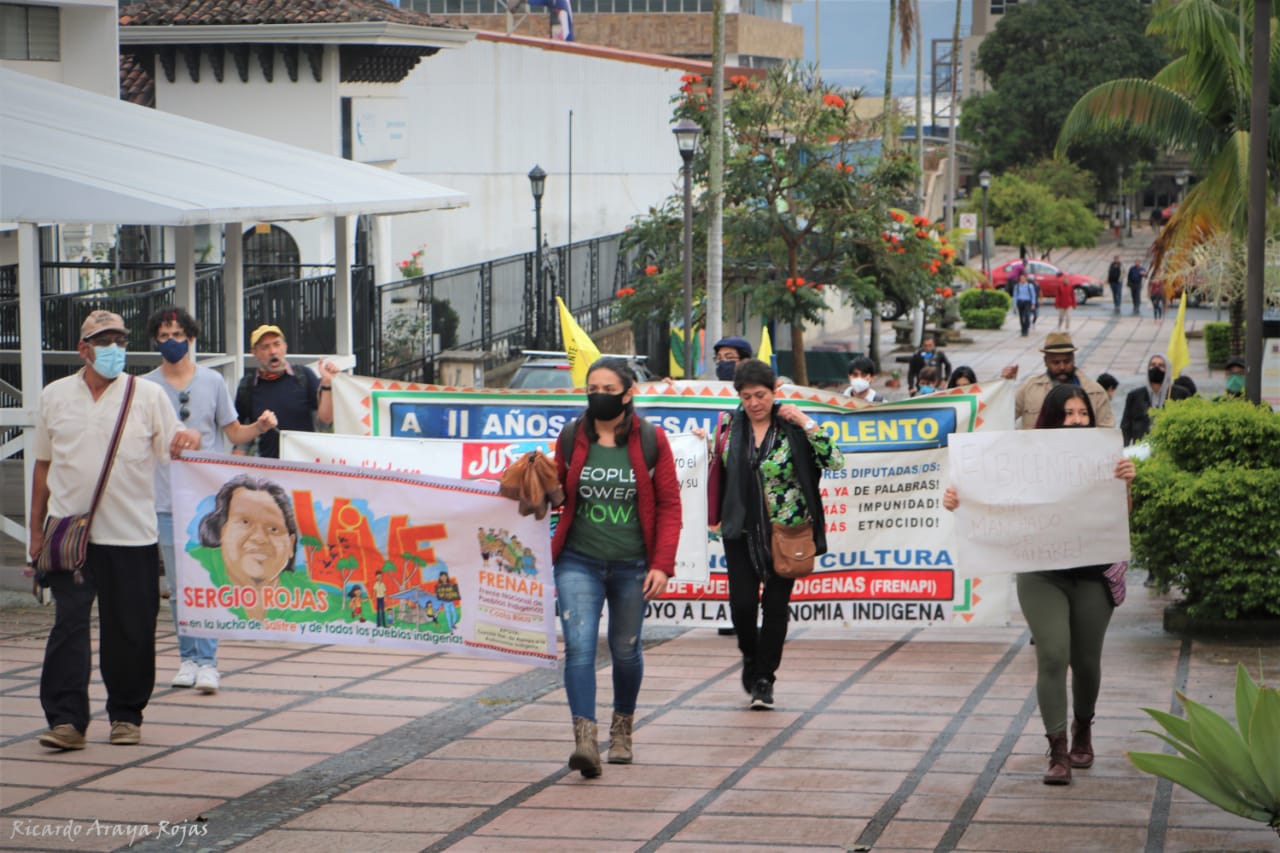
National Front of Indigenous Peoples (FRENAPI) - (Bribri, Cabecar, Brunkaj, Bröran, Maleku, Chorotega, Ngöbe), Costa Rica
The National Front of Indigenous Peoples was created by eight Indigenous Peoples with the aim to strengthen their communities from outside intrusion. They provide tools to Indigenous leaders on key issues such as rights, land and territory, spirituality, and self-governance. With the support of a KOEF grant, FRENAPI are organizing the Second Meeting of Indigenous Spiritualities and the Third Meeting of Exchange of Experiences of Defenders of the Earth and the Territory. Additionally, they will be working on a new edition of their Indigenous Law Primer guide.
Amazon Commune Organization - (Kichwa), Ecuador
The Amazon Commune Organization is made up of 15 young people from the Napo province, a territory that is under invasion by alluvial gold mining concessions. Faced with the problems caused by mining, such as the spread of diseases and environmental destruction, Amazon Commune is undertaking a campaign in defense of life, water, and territories to raise awareness among the Kichwa population about these dangers. The project, implemented in conjunction with other community organizations, seeks to strengthen the Indigenous guards and influence mining regulation measures.
Communities in Resistance of the Sierra de Las Minas and Nim Poqom Center - (Maya Poqomchi, Maya Q'eqchi), Guatemala
Communities in Resistance was created to defend and restore the territory of Rex Awaj from extractivism and interventions by the Guatemalan State. In collaboration with the Nim Poqom Center and financed by the Keepers of the Earth Fund, this project is strengthening processes of political organizing of the participating communities. Workshops, assemblies, land meetings, and radio programs are being carried out with a focus on community resistance and organization for the defense, protection, and recovery of the Q'eqchi' and Poqomchi territories of the Sierra de las Minas.
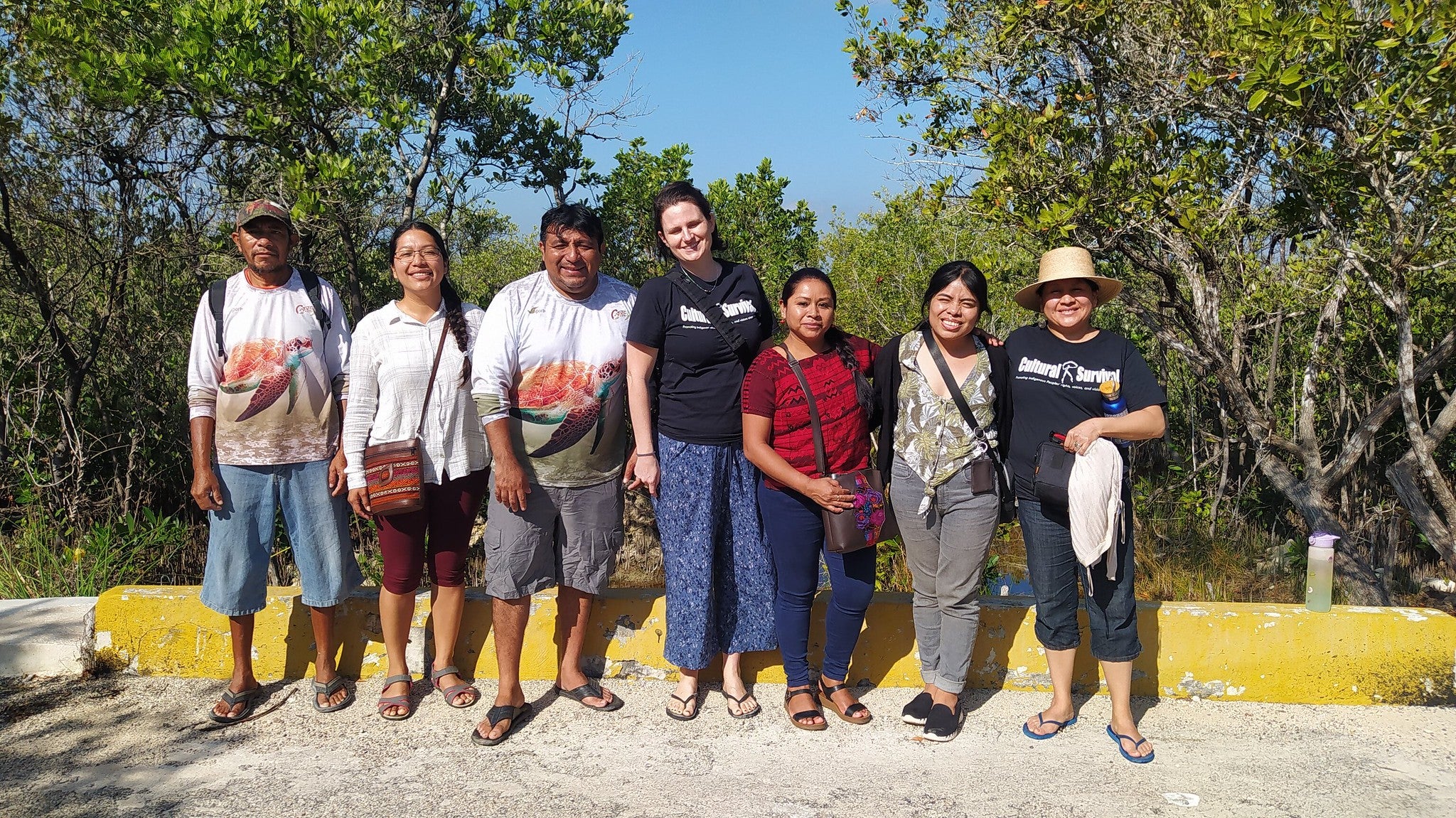
Carey Ecotourism Services Cooperative - (Maya), Mexico
The Carey Ecotourism Services Cooperative was established in the town of Isla Arena, Campeche, in 2005. They are dedicated to community-run tourism as an alternative to fishing, which until recently was the main source of income for the community. This new activity has promoted the inclusion and leadership of women while protecting, restoring, and promoting the environment of this coastal territory. Today, the community is threatened by the growing interest of private companies wanting to buy out and dispossess them of their ancestral lands. In response, the Cooperative, with the support of the Keepers of the Earth Fund, launched a project to strengthen community-run tourism with an environmental, cultural, and social commitment aimed at children and youth to ensure the protection, restoration, conservation, and monitoring of the environment and territory.
Movement in Defense of Life and Territory (MODEVITE) - (Tseltal), Mexico
Movement in Defense of Life and Territory is an organization made up of Indigenous people from 11 municipalities in the state of Chiapas, who came together in 2013 to defend the territory against the impacts of highway construction from San Cristóbal de las Casas to Palenque. Faced with a complex sociopolitical context and growing violence in the communities, the 11 municipalities formed committees to train youth in Indigenous knowledge about the Tseltal justice system. With the support of a KOEF grant, they will use their cultural knowledge, self-organization, and participation in community life to better defend their territory.
San Francisco Magu Community- (Otomi), Mexico
The Otomí community in San Francisco Magu, located in the Municipality of Nicolás Romero in central Mexico, is threatened by real estate megaprojects Bosques del paraíso and Seven Cities of the Bicentennial, which plan to build more than 1 million houses. It is estimated that these projects will devastate 10 hectares of pine oak forest and an additional 184 hectares of forest in their territory. With the support of a KOEF grant, the Zeferino Ladrillero Human Rights Center is providing legal advice and workshops on monitoring, security, and defense of human rights for community leaders.
San Francisco Suc-Tuc Community - (Maya), Mexico
San Francisco Suc-Tuc is a community located in the state of Campeche. They are fighting for autonomy in decision-making and an independent form of government, without the intervention of the State and political parties. The project, supported by the Keepers of the Earth Fund, seeks to strengthen their process of community autonomy through workshops and meetings with organizations, groups, and communities that have similar government systems. This exchange of experiences will strengthen their own forms of organization.
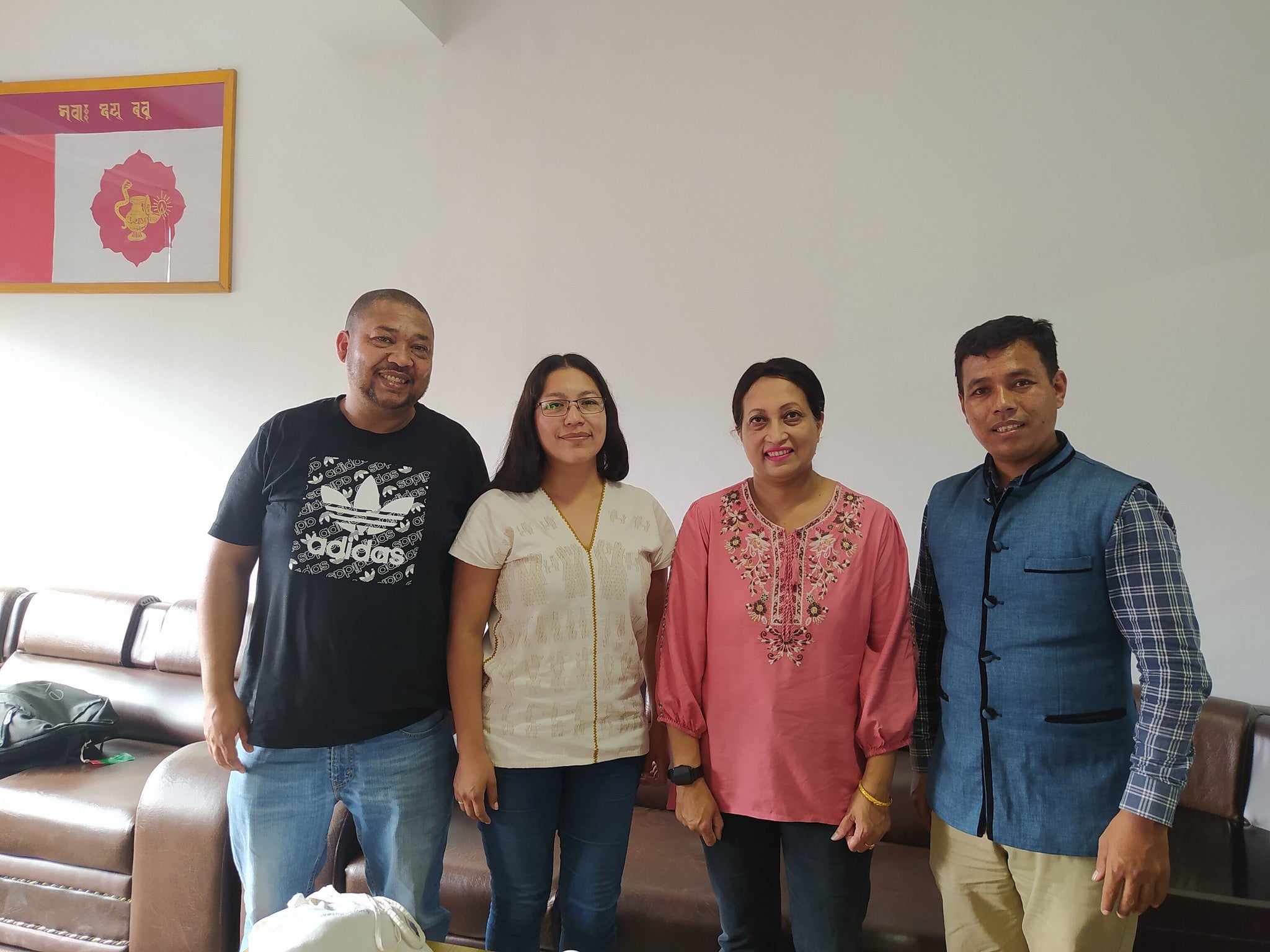
Newa Misa Daboo - Newar (Nepal)
Hundreds of years of discrimination and cultural undermining by the monarchy have been harmful for cultural identity, traditions, and local knowledge of the Newar Peoples in Kathmandu, Nepal. Their ancient settlements are in danger of being destroyed and westernized. Given a previous positive experience with the declaration of an autonomous cultural area for one historical site, they want to extend the same protections to 10 more ancient cities. A team from Newa Misa Daboo, a women-led Indigenous organization, will organize trainings, orientations, advocacy, and interaction with local governments for the preservation of their settlements and lands.
Mayangna Tunba Barakna Uni Amasau Indigenous Community School - (Mayangna), Nicaragua
The Mayangna Tunba Barakna Uni Amasau Indigenous Community School, whose name means "House for the development of knowledge," was founded in 2021 under the direction of the Mayangna de Amasau government. This project was created to design educational modules addressing the direct impacts of mining activities. The modules will focus on the Nicaraguan communities affected by the increase in mining concessions and gold exports by the State and will be included in the school's curriculum. The objective is to strengthen community governance and provide tools to defend their natural resources, territories, and cultural lifeways.
Yvy Pyte Tekoha Guasu Indigenous Community - (Guarani paĩ tavyterã yvy pytey), Paraguay
The Yvy Pyte Tekoha Guasu community is an ancient territory made up of seven villages. It is one of the few tekoha guasu that continue to exist in the region after national policy separated the territories into individual communities. With the support of a KOEF grant, they are organizing work meetings, carrying out and monitoring land demarcation, restoring damaged forests, updating maps, and carrying out procedures to achieve full ownership of their territories.
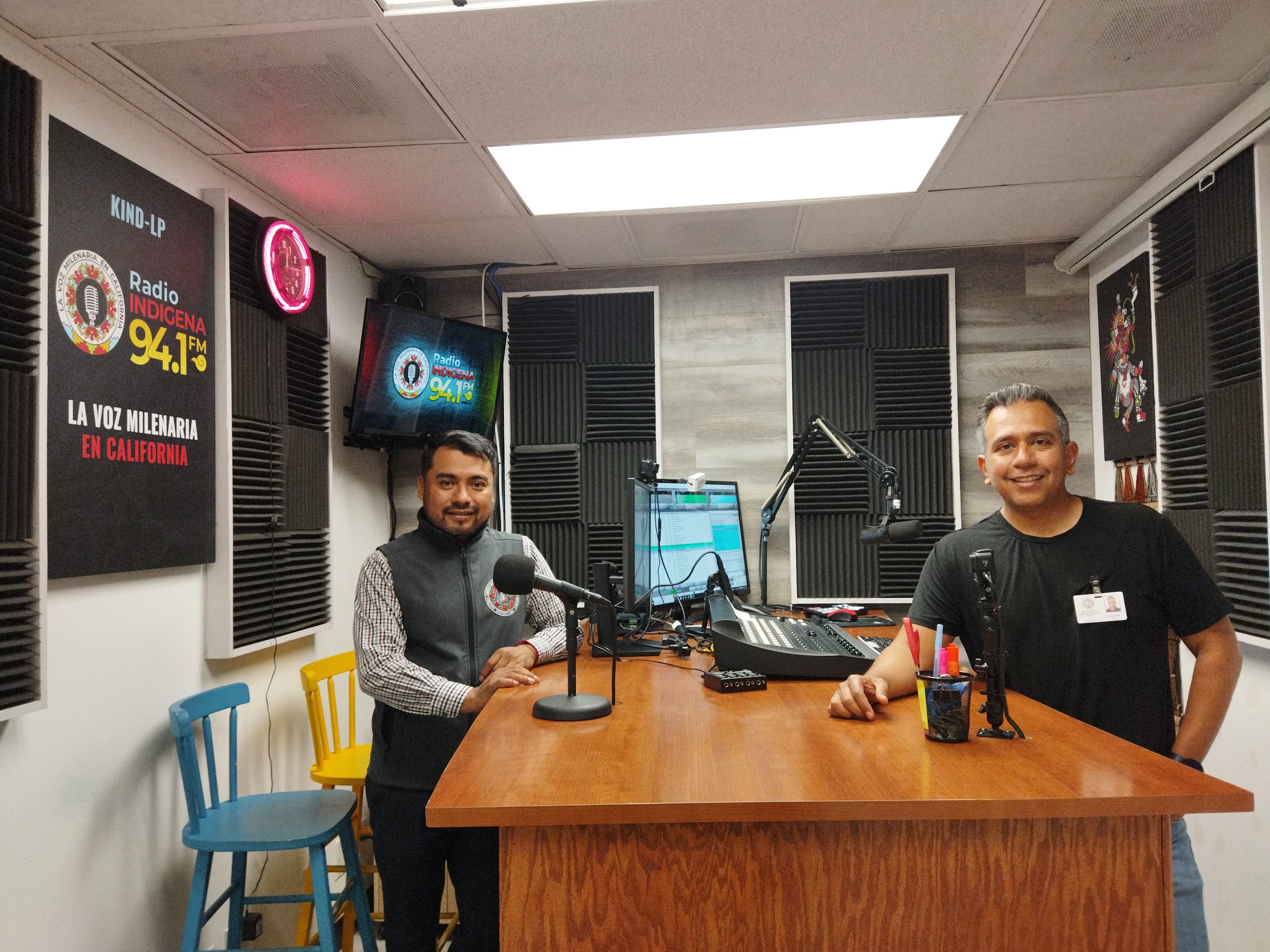
The Mixteco Indígena Community Organizing Project (MICOP) - (Mixteco), U.S.
There are over 70,000 Mixteco migrants in the United States, who are vulnerable to cultural identity loss. To address this challenge, the Mixteco Indígena Community Organizing Project started organizing learning exchanges between an Indigenous leader and a Mixteco researcher to discuss experiences of navigating diverse multicultural, sociopolitical, and economic realities. Through these exchanges, MICOP also aims to counter the racism, prejudice, and isolation Mixteco migrants face in the U.S.
Indigenous Coalition of Migrants from Chiapas (CIMICH) - (Tzotzil, Tzeltal), Mexico
The Indigenous Coalition of Migrants from Chiapas is a grassroots organization that works with migrants and families from the jungle and Los Altos de Chiapas. Given the constant violence faced by migrants, CIMICH works to strengthen their technical and organizational capacities to improve their quality of life. Among the activities funded by their project are workshops on human rights, Indigenous knowledge, defense of land and territory, and ways of buen vivir (good living).
Five Land and Indigenous Rights Defenders
The need for emergency support for defenders of Indigenous Peoples is growing globally. At Cultural Survival, this year we have provided emergency funds to several Indigenous rights and land defenders, including five Indigenous leaders who face serious threats related to their community work securing land and Indigenous rights. The violence against them includes physical attacks, imprisonment, or political persecution. KOEF funds were utilized for medical and psychological care, legal defense, and security and food, among other urgent individual, family, or collective needs.

